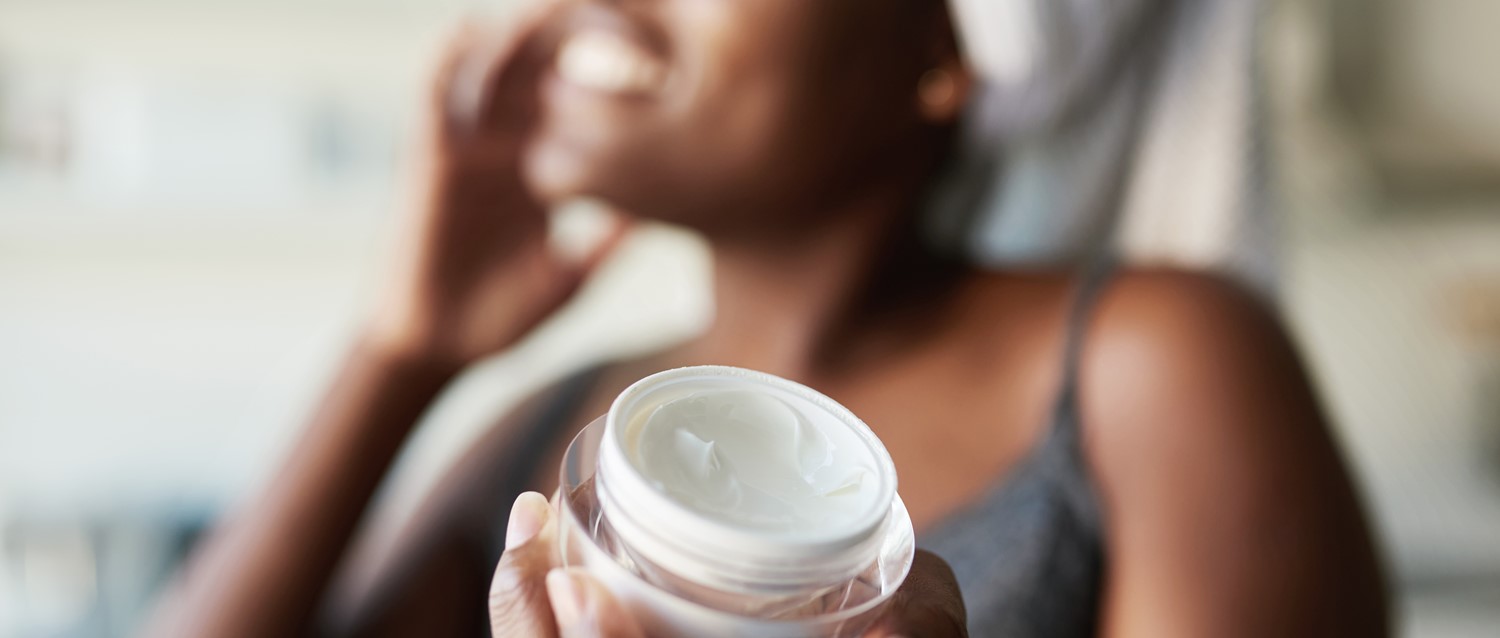
How to care for black skin during winter
Peer reviewed by Dr Krishna Vakharia, MRCGPLast updated by Emily Jane BashforthLast updated 13 Feb 2024
Meets Patient’s editorial guidelines
- DownloadDownload
- Share
- Language
- Discussion
If you have black skin, there are certain habits you can adopt in order to keep your skin feeling and looking healthy, and to avoid problems during the cold winter. Getting to know your skin and how it changes throughout the year, and also how different products work, can help you construct a trusty routine to keep your skin hydrated and happy.
In this article:
Video picks for Skincare
Understanding the makeup of your skin
To understand the issues it is important to first know about the structure of your skin and the differences between black and white skin.
Skin - cross section

The top layer of the skin - known as the epidermis - has different layers of cells within it.
The stratum corneum is the outer layer of your epidermis - the very top layer where dead skin cells will flake off the surface. They are then replaced from the lower epidermal layers.
The barrier protecting the skin and preventing loss of water and moisture is also located in the stratum corneum.
Black and white skin structurally looks the same, but there is a difference in their stratum corneum. Whilst they are the same thickness, it is more compact in black skin as it has more layers.
Everyone has melanin as well - the pigment that determines the skin's colour. Black and white people have the same number of melanocytes (melanin factory cells) but pigment-containing organelles, called melanosomes, are bigger with more of them in people with darker skin.
Studies have also shown that mast cells contain larger granules in black skin. These can cause itchiness and irritation as they release histamine, which makes blood vessels expand and the surrounding skin swollen.
How does the colder weather affect black skin?
Back to contentsIt is important to care for your black skin during the colder months as you are more prone to dry skin.
In black skin there isn't as much water, so the skin is less hydrated. The epidermis in black skin also has fewer ceramides, which are waxy lipids (fatty acids) that form a natural barrier. Therefore, black skin often has a higher level of transepidermal water loss (lost moisture from the skin) compared to white skin1.
Lower temperatures and levels of humidity during winter also lead to a general decrease in the skin barrier's function. Black skin already loses more moisture in comparison with white skin throughout the year, yet in the colder months the barrier acting as a protector is not as secure.
How do the seasons affect your skin?
Continue reading below
How can you care for your skin in winter?
Back to contentsDr Macaulay highlights the importance of nutrition, as healthy skin starts from the inside.
Other ways to look after your skin during winter include:
Drink plenty of water - water is a major nutritional factor, so it's important to drink regularly throughout the day to hydrate your skin.
Eat protein - the skin is made up of lots of cells that need protein, and protein helps generate healthy skin and maintain elasticity and firmness.
Eat enough omega 3 - omega-3 fatty acids help with dryness and can be found in oily fish. If you eat a plant-based diet, speak to a dietician if you're finding it difficult to incorporate omega 3 into your diet. They can help you find alternatives or suitable supplements - flax seeds and chia seeds offer good levels.
Create a regime
Dr Macaulay says a good skincare regime is the number one simple change you can make to take better care for your skin. She recommends not using any type of soap on your skin, as face soap is alkaline whereas the skin is acidic. Using soap can throw off the skin's pH balance and weaken the barrier which helps keep good bacteria in.
As for a skincare routine, she suggests the following step-by-step method:
Cleanse with a good soap-free cleanser.
Exfoliate using a chemical exfoliator.
Use a gentle physical exfoliator glove to exfoliate the rest of your body.
Moisturise with a moisturiser that works best for your skin.
Dr Macaulay stresses the importance of exfoliating to remove the dead cells on the top of your skin, which can otherwise build up and cause problems. If your skin is especially dry, use a sensitive lactic acid exfoliator rather than a glycolic acid one.
For moisturisers, it is important to look at their different ingredients. Moisturisers that contain urea or alpha hydroxy acid attract water to the top layer of skin, whereas emollient-based moisturisers fill in the spaces between cells and sometimes contain ceramide. An emollient cream is better for hydrating and conditioning severely dry skin. Oily-based moisturisers also prevent water loss in your skin's top layer.
If you have oily skin, continue to avoid soap because this will strip your skin of its natural oils and, again, cause an imbalance in pH. It's also still important to moisturise, despite some people believing they don't need it because their skin type is naturally oily.
What about night time?
As for your evening skincare routine, use retinol. A vitamin-based serum will help speed up the cell cycle, allowing new skin cells to come to the top more quickly. However, if your skin is dry, be more gentle with the products you apply and keep a close eye on how your skin reacts to them. You may not need to use everything every day.
The importance of sun cream
Back to contentsMany people assume that sun cream isn't a necessity in winter, because it is colder. However, it is just as important to protect your skin in winter as it is in summer. Dr Macaulay stresses the need to use SPF as a physical barrier between the skin and UV rays that can cause damage at any time of the year.
When choosing a sun cream, it is important to look at the ingredients for these too, because not all lotions will protect against both UVA and UVB rays - UVA being the harmful rays that cause wrinkles deep into the skin and which is present all day long, and UVB being what causes the immediate sun damage we are familiar with, such as sunburn.
Dr Macaulay recommends a non-chemical SPF, as it won't cause a build-up of toxins and stays in place all day without needing to be reapplied.
Continue reading below
Keep an eye on your skin
Back to contentsDr Macaulay highlights that everyone's skin is individual, so a regime that works for one person will not necessarily work for another. Therefore, it is really important to adjust your skincare regime based on how your skin behaves and to respond to any changes in your skin.
You should cleanse and moisturise and use SPF every day, but exfoliation depends on what your skin is like. It is common to exfoliate three times per week, but compare your skin in the winter to your skin in the summer and be flexible to changing up your routine with the seasons.
Get to know your skin on a deeper level and how it responds to various weather types. Also, don't get too stuck in your ways with one winter skincare regime and one summer regime, as some winters are colder and dryer and some summers are more humid.
Further reading
Back to contentsPatient picks for Skincare

Skin, nail and hair health
Protecting your skin from harmful pollution
It's not just sun cream you need to think about when it's hot - stagnant summer days can make air pollution especially high. This can aggravate existing skin conditions and speed up skin ageing, but a cleansing routine with the right ingredients can help you. Find out how to help protect yourself here.
by Amberley Davis

Skin, nail and hair health
Does stress make skin problems worse?
Stress and lack of self-confidence are some of the devastating consequences of severe skin conditions. But can stress also be a cause, triggering the problem in the first place?
by Léa Surugue
Continue reading below
Article history
The information on this page is peer reviewed by qualified clinicians.
Next review due: 22 Oct 2027
13 Feb 2024 | Latest version
22 Oct 2021 | Originally published
Authored by:
Emily Jane Bashforth

Ask, share, connect.
Browse discussions, ask questions, and share experiences across hundreds of health topics.

Feeling unwell?
Assess your symptoms online for free
Sign up to the Patient newsletter
Your weekly dose of clear, trustworthy health advice - written to help you feel informed, confident and in control.
By subscribing you accept our Privacy Policy. You can unsubscribe at any time. We never sell your data.